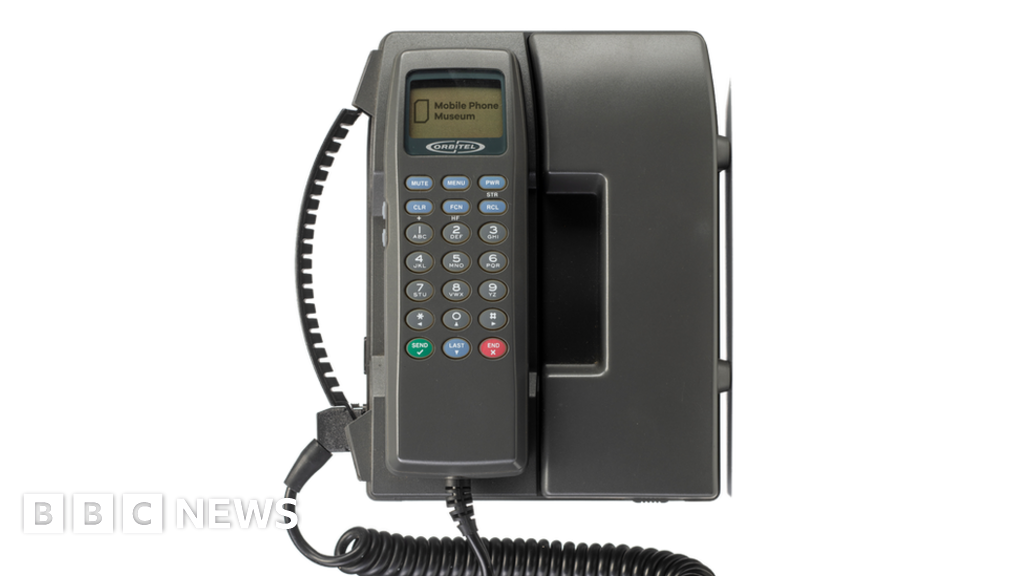The text message is celebrating its 30th birthday – the first was sent to a mobile phone by a Vodafone engineer in Berkshire in the UK on 3 December 1992.
It was sent in order to test out the tech, and read "Merry Christmas".
Neil Papworth sent it to one of the firm's bosses, Richard Jarvis, who was at a Christmas party. He did not get a reply.
Mr Jarvis's phone, a new-to-the-market Orbitel 901, weighed 2.1kg – roughly the same as 12 standard iPhone 14s.
At its peak, phone users exchanged billions of SMS – or Short Message Service – messages every year, and in 2010 the word "texting" entered the dictionary.
The service is still used, although internet-based, encrypted messaging platforms like WhatsApp and iMessage are far more popular.
According to Statista, there were 40 billion SMS messages sent in 2021 in the UK, down from 150bn in 2012. By contrast, there are 100 billion WhatsApp messages sent worldwide every day.
The service is still used by the NHS to send out appointment reminders, and by some firms as a form of log-in authentication, where a number sequence is sent which has to be entered into its website.
However, SMS messages are not end-to-end encrypted, and therefore not considered to be secure.
Originally, an SMS could only be text, up to 160 characters long. The concept was born in the early 1980s but it was almost 10 years before one would be sent to a mobile device.
Most early phones had numeric keyboards, with two or three letters attached to each number – so for example to type the letter C, the number one key had to be pressed three times.
"Handset manufacturers didn't include proper QWERTY keyboards because mobiles were only for making telephone calls and receiving messages, but not sending them," said Nigel Linge, professor of telecommunications at the University of Salford.
Ben Wood, chief analyst at CCS Insight, recalled giving training sessions on how to send and receive text messages.
"It took off like wildfire and before long people were getting so fast at texting on phones, they could pretty much touch-type on a numeric keyboard," he said.
"These days people spend more time looking at their phones than talking into them. SMS was arguably the catalyst for that transition."
You can follow Zoe Kleinman on Twitter (@zsk).
Allow YouTube content?
This article contains content provided by Google YouTube. We ask for your permission before anything is loaded, as they may be using cookies and other technologies. You may want to read Google’s cookie policy, external and privacy policy, external before accepting. To view this content choose ‘accept and continue’.
Mobile networks send 'stay at home' Covid-19 text
Text chat with the pioneer of SMS
Is it the end of SMS text messaging?
Iran hijab police accused of beating girl into coma
McCarthy has gone. What happens now?
China censors 'Tiananmen' image of athletes hugging
McCarthy has gone. What happens now?
Deserted Karabakh reveals scale of military defeat
India-China feud keeps planes out of Nepal airport
Watch: BBC goes on the hunt for Paris bedbugs. Video
Bedbug panic sweeps Paris as infestations soar
The guardians of Peru's Potato Park
Marriage equality eludes Japan's same-sex couples
How Mike Jeffries used shirtless models to sell Abercrombie
The lives upended by colonial rule in the Middle East
The companies paying for workers' holidays
The dress that shocked the world
A place with air so clean it's bottled
© 2023 BBC. The BBC is not responsible for the content of external sites. Read about our approach to external linking.
'Merry Christmas': 30 years of the text message – BBC.com

